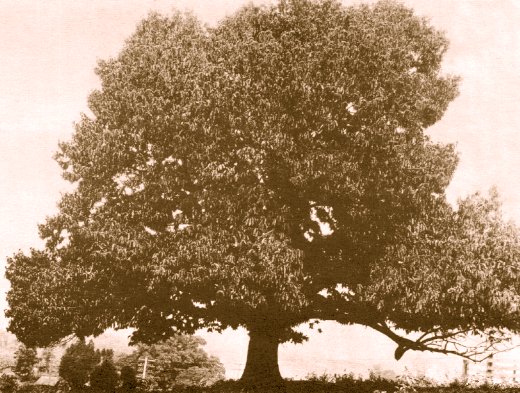
As Jennie started down the stairs into the lobby, she could see Johnson seated upon the round sofa at the center of the room, his hat in his hands, resting upon his walking stick, a white flower in the button hold of his lapel. He stood as soon as he saw her, walking across the room to meet her at the bottom of the steps. Taking her hand her kissed it, and asked, “How is it possible that you are even more beautiful now than the day I met you?”
“Well Mr. Lynch, I see you are as good a liar as you have always been, and I thank you for it,” she said as she smiled.
“My God, but it is good to see you again,” he said, as he looked into her blue eyes, and Jennie could see that he meant it.
“I can’t believe it has been so long,” she told him, “Seeing you now I feel as if you have been with me all the time.”
Indeed, she thought, he had been there within her heart throughout the long months of separation. How else could she explain his presence in her room those nights when the bed was so cold and empty?

“I trust that you have found the accommodations to your liking?” he asked, knowing full well how the cosmopolitan surroundings excited her.
“Of course! What is not to love?” she said, “There cannot be a finer hotel in all the country. Although I should find even a barn agreeable if you were to be in it.”
Extending his arm, he said, “Come, let me show you the rest of the city”

Jennie took his arm and they stepped out into the bright sunlight of the street. Arm in arm they strolled through the crowds on the sidewalk, fully absorbed in their conversation. Lynch seldom took his eyes off of her, and seemed to be hanging upon her every word. Stopping for dinner in a restaurant full with the business crowd, she felt as if she were the center of attention. The eyes of all the men seemed as if they were upon her as they talked and laughed.
Leaning across the table he whispered, “You have no idea how difficult it is to be this close to you, and not be able to hold you in my arms.”
Jennie blushed, and felt a tingle of excitement as she glanced around to see if any of the people sitting near them had heard.
“Let me take you back to the hotel,” He said, “where I can kiss you without worrying about prying eyes.”
“Why Mr. Lynch,” she responded, “you will have to wait until after dinner before you can have your desert.” Feeling the thrill of the power she had over him.
Climbing the stairs to her room, she glanced behind to make sure that they were not being followed. Even now, in a city where they were both strangers, she couldn’t help but feel as if she was being watched, and the feeling only made the moment more exciting.
As soon as they entered the room, Johnson turned her to him, and bending down kissed her full upon the lips. She put her hands around the bulk of his shoulders, and he lifted her feet from the floor with his strong embrace. Kissing passionately, they pulled and tugged at each other’s clothes until nothing more stood between their embrace. Carrying her to the bed, he lay her down upon it.
The breeze from the window stirred the drapes, and light shone in shafts across the floor. Outside the noise of the streets echoed between the buildings, but all Jennie could hear now was the sound of their breathing, as they rolled about on the sheets, Johnson’s strong hands upon the small of her back, as he rolled her on top of him. Her hair fell in a wild tangle about his face, and still they kissed, heedless of the world around them.
The made love, again, and again, stopping only when the sunlight faded, and the darkness crept from the corners of the room. She spent the night sleeping with his arm draped across her shoulders like a blanket, the sheets pulled down, and the evening air cool against her skin.
When morning came, she woke to the feel of his soft kisses upon her neck. They made love again, then lay in each others’ arms, looking up at the ceiling.
“My dear, the thought of leaving is like a knife blade in my heart” she told him, tears welling in her eyes.
“Shh…” he consoled her, “we may be parting for the moment, but it will not be forever.”
“I wish we could be together like this every night,” she told him, “I feel as if I am only alive when we are together, and all the rest is just a dream.”
He said nothing, but turned her face towards him, and kissed her on the lips.
“Jennie, as much as we want it, it cannot be,” he told her, “You must get back to your life, and your home. In the mean time, I will carry you with me in my heart until we see each other again.”
She closed her eyes and wept quietly against his chest.




















